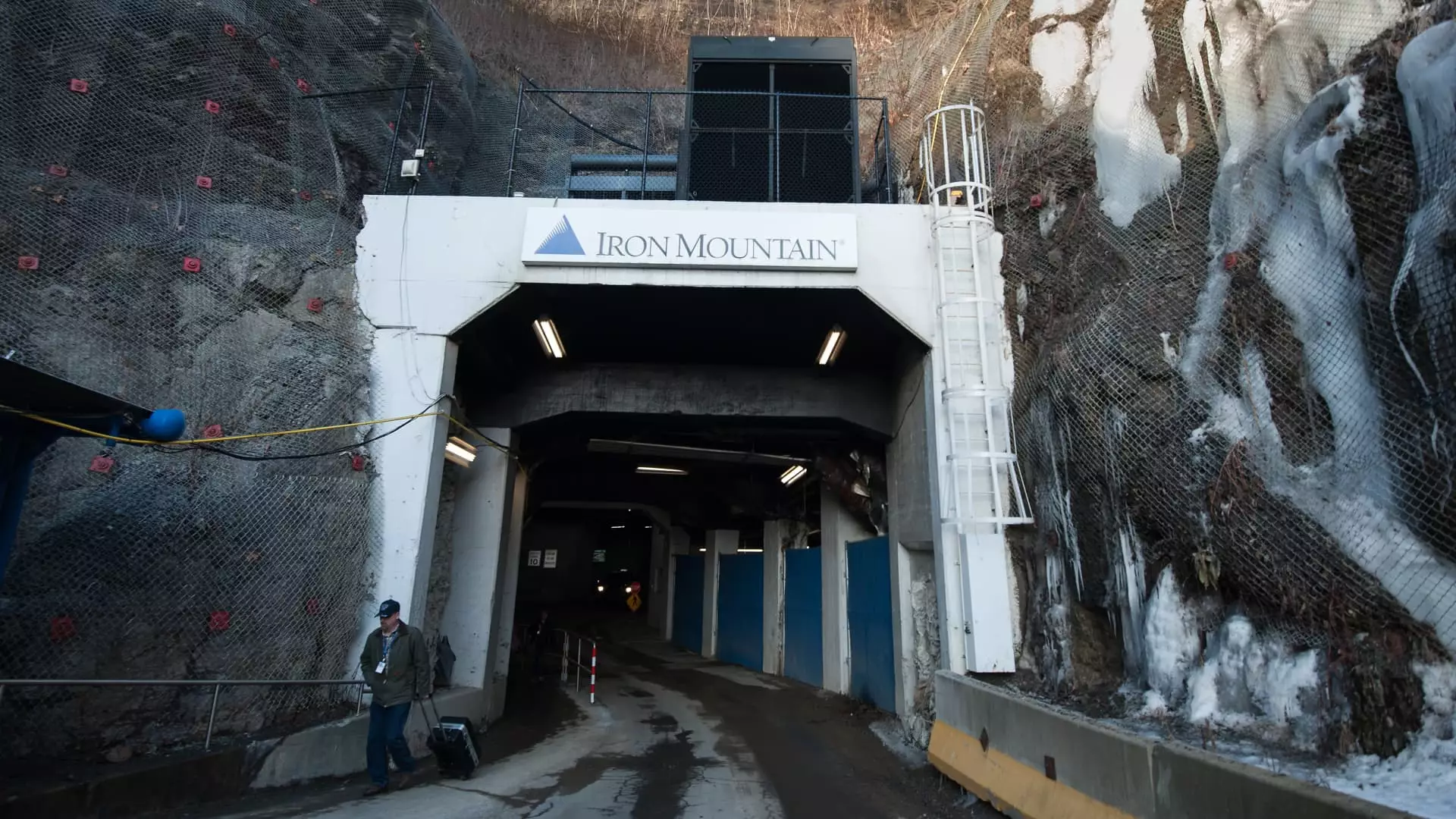In an unexpected event, tech mogul Elon Musk took the stage alongside then-President Donald Trump in the Oval Office. The conversation that ensued illuminated Musk’s controversial critiques on the inefficiencies entrenched within the federal government, focusing particularly on a unique storage solution for retirement paperwork housed in a limestone mine. Musk’s remarks, though met with a blend of enthusiasm and disbelief, served to underscore a broader theme—how technological innovation can clash with governmental inefficiency in unexpected ways.
Musk’s description of the mine, which he likened to a relic from the 1950s, reveals the stark contrast between modern technological capabilities and the outdated practices of federal agencies. The mine is operated by Iron Mountain, a company that specializes in information management and storage, and it is here that the government stores crucial retirement documentation—200 feet underground, no less. The implications of such a setup suggest an organization burdened by outdated methods, with Musk emphasizing that the speed of an elevator dictates the pace at which retirements can be processed.
Musk’s initiative, humorously titled the Department of Government Efficiency (DOGE), aims to scrutinize and overhaul such inefficiencies. His comments have drawn significant attention, particularly at a time when the government faces criticism regarding fiscal responsibility. The juxtaposition of high-tech ambitions against the backdrop of a timeworn infrastructure raises important questions about the feasibility of innovation within the rigid confines of the public sector.
Musk’s statements prompted a mixed reaction from the market and stakeholders connected to Iron Mountain. The company found itself grappling with concerns surrounding its governmental contracts, as investors worried about the long-term implications of Musk’s observations. The stock value of Iron Mountain took a hit, reflecting Wall Street’s anxiety over potential cuts in federal contracts that, while small, nonetheless represented significant business for the company.
In the wake of Musk’s comments, Iron Mountain’s CEO, Bill Meaney, took a measured approach, viewing the DOGE initiative not as a threat but as a growth opportunity. Meaney emphasized that Iron Mountain’s other offerings—particularly its data center and digitization services—might align well with the government’s push for efficiency. His estimates suggest that while the physical storage of documents in facilities like the limestone mine generates a meager $10 million in revenue, their digital transformation arm is booming, showcasing a potential pivot for the company.
Meaney’s perspective mirrors a broader trend where digitization is becoming pivotal for government agencies. The historical practice of storing paperwork in mines not only appears archaic but also underscores the need for comprehensive reform in how federal documentation is treated and processed. The voices both in support of and against Musk’s comments illustrate a complex web of interests that surround government contracts and private enterprises.
Despite the initial stock decline following Musk’s candid remarks, analysts have suggested that the market reaction may have been overly pessimistic. Wells Fargo analyst Eric Luebchow noted that Iron Mountain’s business model is diversified enough to withstand the potential loss of its federal contracts without significant long-term ramifications. Furthermore, Barclays analyst Brendan Lynch pointed out that the legal requirements for record-keeping within the government could actually sustain Iron Mountain’s position, regardless of how DOGE unfolds.
The stark realization is that while Musk’s critiques may very well pave the way for future efficiency reforms, the pathway to government overhaul is fraught with challenges. His infatuation with efficiency must reconcile with the political realities that govern federal bureaucracy. The situation underscores how influential private sector ideas can clash with the inertia of public sector practices.
As the Trump administration reexamines its contracts and spending practices, there is a palpable tension in the air—a mixture of hope for progress and apprehension for the established order. Musk’s ambition, although unorthodox, echoes a growing sentiment across various sectors that innovation is paramount, even in the corridors of government.
Musk’s interventions serve as both a call to action and a warning against complacency within federal operations. The partnership—or rather the collision—between Musk and Trump signals a pivotal moment for governmental reform. Whether this leads to substantial changes within the opaque labyrinth of federal bureaucracy remains to be seen, but the conversation Musk has sparked insists on an urgent re-evaluation of how the government operates in a rapidly advancing technological landscape. The challenges ahead, though daunting, present a critical opportunity to bridge the gap between innovation and governmental efficiency.

